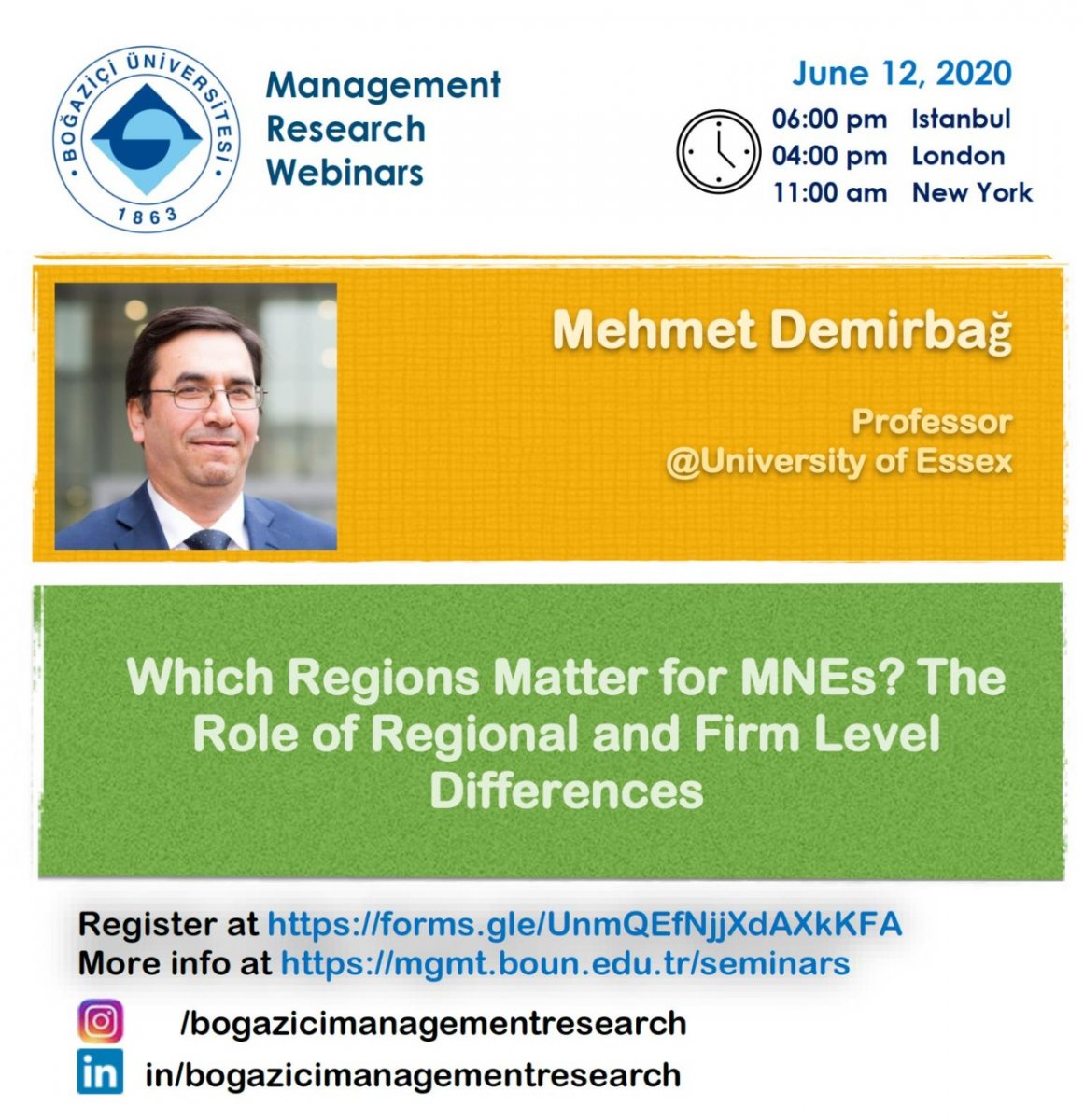| Pt | Sa | Çar | Per | Cu | Ct | Pa |
|---|---|---|---|---|---|---|
| 1 | 2 | 3 | 4 | 5 | 6 | |
| 7 | 8 | 9 | 10 | 11 | 12 | 13 |
| 14 | 15 | 16 | 17 | 18 | 19 | 20 |
| 21 | 22 | 23 | 24 | 25 | 26 | 27 |
| 28 | 29 | 30 |
Management Research Webinars: Dr. Mehmet Demirbag

Which Regions Matter for MNEs? The Role of Regional and Firm Level Differences
Mehmet Demirbag is a professor of International Business and Deputy Dean of Essex Business School. Prior to joining Essex Business School, he served as Vice Dean (internationalisation) and head of Department of Strategy and Organisation at Strathclyde Business School, and as Chair in International Business at the University of Sheffield Management School where he taught for more than ten years. He has wide experience in research and teaching in International Business and International Strategic Management in the UK and abroad. Mehmet also has extensive experience in policy development having served as the principal advisor for the Turkish Ministry of Industry and Trade. Over the years, he has completed research projects for a range of funding bodies including the European Commission. Mehmet teaches International Business and International Strategic Management at undergraduate, postgraduate and executive levels. Mehmet is a senior editor of the Asia Pacific Journal of Management and a consulting editor of the Journal of International Management. Mehmet is editorial review board member of, British Journal of Management, Journal of World Business, Management International Review, International Journal of Multinational Corporation Strategy, Journal of Asia Business Studies, Eurasia Journal of Business and Economics, International Journal of Quality and Standards, Journal of Global Analysis, and previously Scandinavian Journal of Tourism and Hospitality Management, and Journal of East-West Business.
Abstract
This paper explores the impact of regional and firm level heterogeneity on MNE performance from an operational perspective. We find that the underlying economic growth of a region and the MNE's overall product diversity significantly impact returns from downstream operations in specific regions. Based on a 10 year panel dataset of 1249 US based MNEs, results show that the incremental impact of the degree and speed of operations within a given region, is greater for regions exhibiting faster economic growth than for slower growing ones. For slower growing regions only, product diversity of the MNE becomes important and negatively moderates the link between operations and performance. Previous literature has shown that MNEs largely follow a regional strategy and has ignored the role of inter-regional differences, and how firm level characteristics interact with region specific ones. Once inter-regional heterogeneity is introduced, a more complex picture of the internationalization performance link emerges than has been addressed previously, with significant implications for the theory and practise of internationalization.
Please register at: https://forms.gle/UnmQEfNjjXdAXkKFA

